Let’s talk villains.
Yes, I know, there have been other lists about villains before. But I want to talk about a very special sort of villain. The kind whose motivation isn’t greed or lust for power, jealousy or spite. I want to talk about my favorite kind of villain, the one who is doing this whole bad guy routine for the best of reasons. The villains who might not object to being called villains but will absolutely defend their actions as necessary. No, really. They could have been heroes, if only they’d been a little less willing to sacrifice every life but their own. They are, at least to me, relatable in a way so many other villains aren’t. It’s easy to say that I would never do a bad thing, but if the fate of the whole world was at stake…?
Arkady Martine once perfectly described these fiends as “slick, charismatic manipulative hyper-competent sociopaths with species level ethics and no other ethics to speak of.” I love them. Yes, they’re absolutely trying to save the country/world/universe—they’re just also willing to do some thoroughly objectionable things on the way. From Thanos and his finger-snap to Ozymandius’s plan to save the human race from itself (finished before the monologue, thank you) every single one of these villains has ‘the ends justifies the means’ embroidered on a pillow somewhere.
So here are my five favorite books with villains (who are trying to save the world):
Cardinal Richelieu, Alexandre Dumas’s The Three Musketeers
Having been first introduced to this swashbuckling story via movies like the 1993 version starring Kiefer Sutherland, Oliver Platt, and Chris O’Donnell, I was more than a little shocked the first time I read the book. Dumas makes it bluntly clear that Richelieu’s main motivation is a strong desire to do what he thinks is best for France, not exactly the carpet-chewing ambition I’d so often seen in the movies (you know I love you, Tim Curry, but…) He doesn’t necessarily hold a grudge either (indeed, he’s the one who suggests to the king that Louis really should just go ahead and make that D’Artagnan kid a musketeer.) Unfortunately, there’s a lot of wiggle room in ‘what is best for France’ and Richelieu takes it to ruthless extremes. Sure, his feud with the Queen does stem from her unwillingness to sleep with him, but is he really wrong to point out that just maybe her having an affair with an English Duke is even more ill-advised? To my mind, he will always be the quintessential mastermind villain willing to make the ‘hard decisions’ that others can’t or won’t. (I’ll admit my own Relos Var and Senera owe more than a passing nod to Richelieu and his favorite ‘problem-solver’ Milady DeWinter.)
Buy the Book
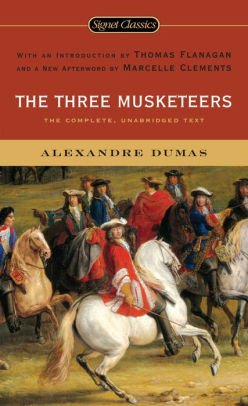

The Three Musketeers
The Lady, Glen Cook’s The Black Company
Glen Cook’s Black Company books have made it on to so many of my lists that I’m starting to think I should just permanently save him a spot. Anyway, these books are rather famous for being able to throw a stone and randomly hit a villain, while heroes are much harder to find. Yet among those many, many villains, the Lady seems like the worst of the worst as she’s so fond of steam-rolling over entire nations and psychically enslaving her enemies. That is, until you learn that everything she’s done has been to keep her immortal, nearly all-powerful husband (charmingly named ‘the Dominator’) from escaping back out into the world. Which isn’t to say that the Lady doesn’t do some terrible things (again, psychic-slavery, mass-murder,) just that her husband might well destroy the universe if he ever escapes.
Buy the Book
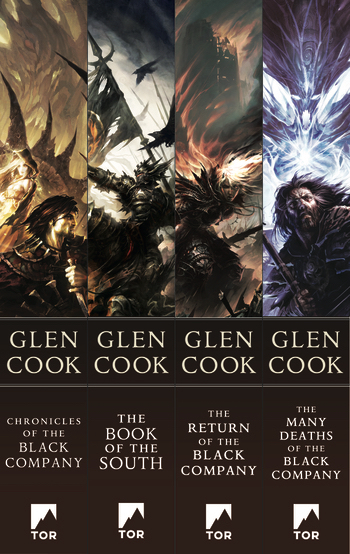

Annals of the Black Company
Ariane Emory, CJ Cherryh’s the Cyteen Series
You might be tempted to think that Ariane Emory can’t possibly be the villain of the Cyteen series since she is, after all, slain at the start of the first book. Yet even after Dr. Ariane Emory’s murder, the geneticist’s ruthless and cynical touch continues to shape and meddle with the lives of everyone who lives in her shadow—including her clone, who is being groomed to carry on her legacy. Sure, you can argue that a murder victim hardly qualifies to be a villain, but Ariane Emory doesn’t care about your ‘rules.’ It’s scant comfort to the lives of those affected by her that her obsession with ‘legacy’ and creating a clone who is her mental as well as genetic duplicate is tied to the belief that she holds to key to humanity’s survival in the galaxy. Or that, as the scientist in charge of the psychological programming of the azi, the genetically engineered clones who form a slave caste for the society, she might be right. (There’s a tie-in between this book and a number of Cherryh’s other scifi works, but probably most notable is the Hugo-winning Forty Thousand in Gehenna, where–surprise!–it’s the descendants of Emory’s programmed azi clones who fair best.)
Buy the Book
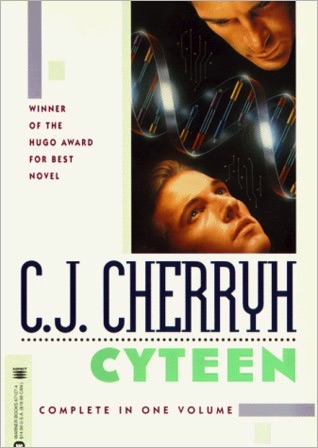

Cyteen
Gerald Tarrant, CS Friedman’s Coldfire Trilogy
While I suppose one might argue Gerald Tarrant more specifically falls into the category of anti-villain (see Shuos Jedao, below) he’s still starts off the series as a cold-blooded sociopath who sacrificed his entire family to make sure he lived long enough to save humanity. (Unfortunately for him, a side effect of his bargain meant that after making that particular sacrifice he had no interest in saving humanity. Woops.) Gerald is charming, honorable, sarcastic, devastatingly handsome…but did I mention he’s a vampire who feeds off the fear of his victims? (Who are usually young women, by the way.) He’s spent the last eight hundred or so years as a serial killer and general terrible person—but for really good reasons, so uh…that makes it okay…? (No, Gerald, it really doesn’t.)
Buy the Book
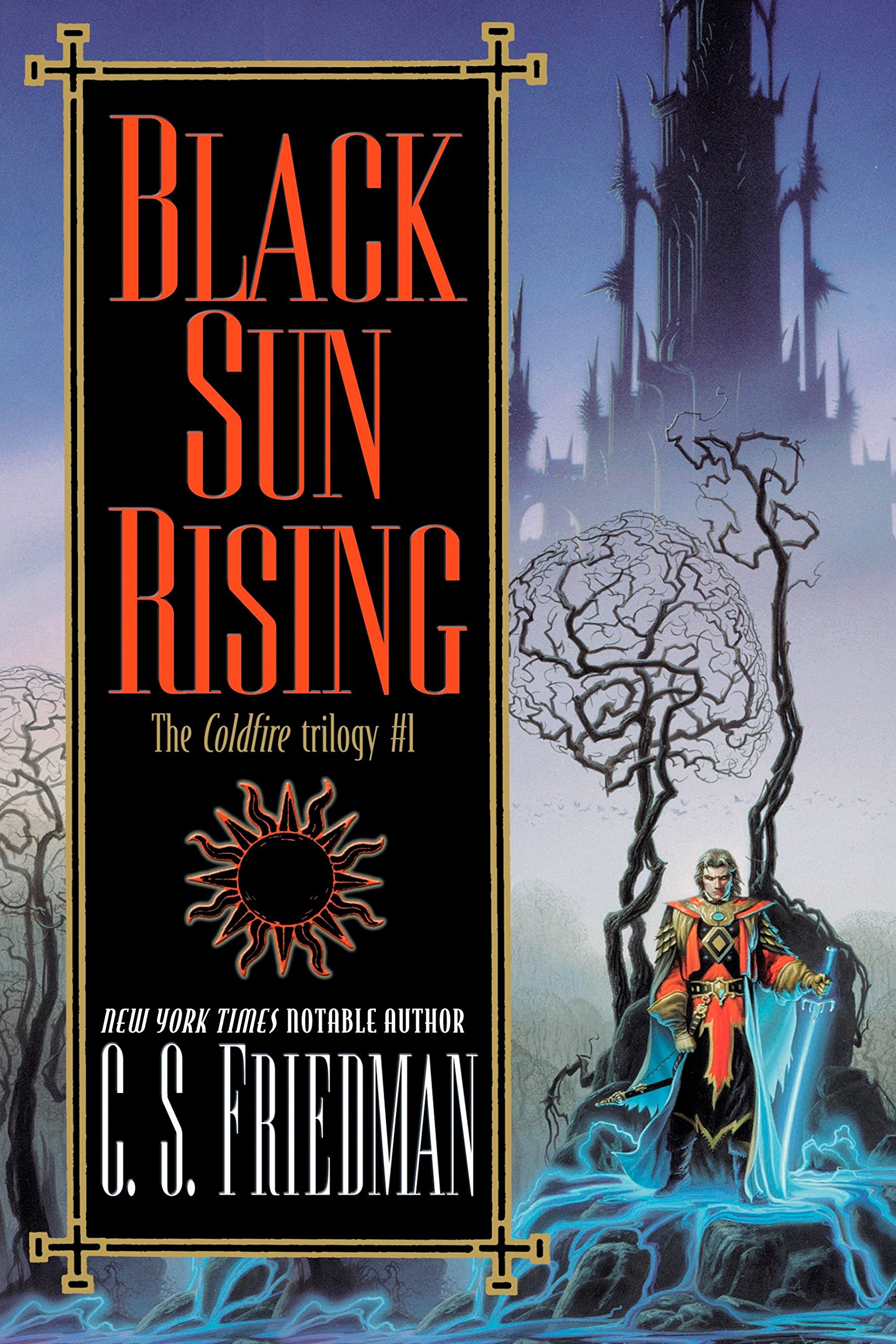

Black Sun Rising
Shuos Mikodez/Shuos Jedao/Nirai Kujen, Machineries of Empire series by Yoon Ha Lee
I know Yoon Ha Lee loves the same sort of villains I do, because he gave me three of them to choose from. First, we have Shuos Mikodez, the charming and thoroughly debauched genius who runs the intelligence branch of the empire. Then there’s Nirai Kujen, who has warped the empire into a banquet of atrocities in his quest to create a post-scarcity universe. And of course villain/hero Jedao, who can (and does) do almost anything to stop Nirai Kujen. ‘Acceptable losses’ start to take on a whole new dimension when the populations of entire planets fall within that definition. Jedao and Mikodez are both arguably anti-heroes/anti-villains, but Kujen’s label is far less open for debate. Kujen leaves a trail of devastation through the lives of trillions—and all for reasons he thinks are entirely justified. No child will go hungry on his watch, but millions will die the most gruesome of deaths to support the hierarchical calendar that makes interstellar travel possible.
Buy the Book
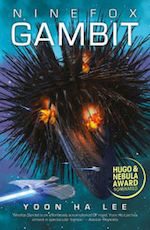

Ninefox Gambit
Basically, give me a bad guy who wants to do the right thing the wrong way any day of the week. These five books (or series, in a few cases) aren’t just good examples of the trope, they’re books that I’ve come back to and read again and again. Which only proves, I suppose, that a story is always made better by having an amazing villain.
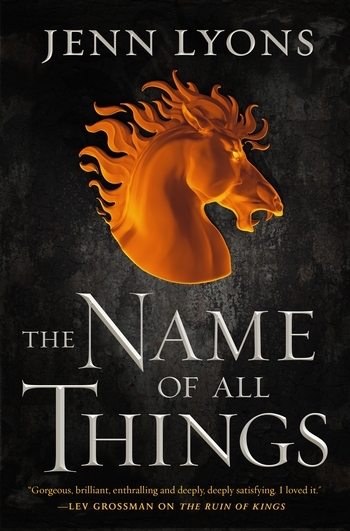 Jenn Lyons lives in Atlanta, Georgia with her husband, three cats, and a nearly infinite number of opinions on anything from mythology to the correct way to make a martini. Her debut epic fantasy The Ruin of Kings is available from Tor Books; its sequel The Name of All Things publishes October 29th.
Jenn Lyons lives in Atlanta, Georgia with her husband, three cats, and a nearly infinite number of opinions on anything from mythology to the correct way to make a martini. Her debut epic fantasy The Ruin of Kings is available from Tor Books; its sequel The Name of All Things publishes October 29th.










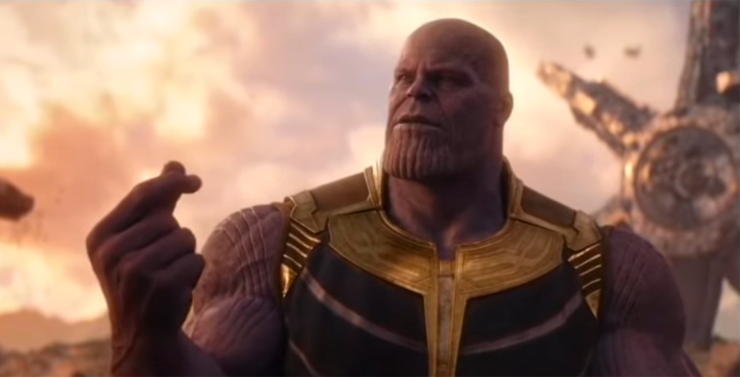
Adrian Veidt in Watchmen is a perfect example of this, though it’s debatable whether he ultimately realizes that he’s the baddie or not.
Quite a few imaginings of Lex Luthor and Dr. Doom take this position, too.
Magneto is another great one.
Serenity’s Operative fully recognized himself as a monster and knew that the perfect world he sought to create would have no room for men such as himself.
A truism of writing fiction is that every villain considers himself the hero. Others just don’t get him. So, every decently written novel with a villain.
While not really the ‘main’ villains, both the Whitecloaks and Elaida in Wheel of Time firmly think they are doing the right thing, with varying results. Which is in part what makes them so insuffrable and dangerous.
Thanos from the comics is very different from Thanos in the MCU. Thanos in the comics wanted to wipe everyone out for his love of the personification of death. There’s not a lot of sympathy for the villain in that so the MCU version had a more “altruistic” reason.
The Bloody Handed Amyr in the Kingkiller Chronicle. I’m hoping we learn more about them in book 3 but their motto is, For the Greater Good, and they seem to have done some super messed up things throughout the history of the four corners. Mayhaps Kvothe is one of the Amyr.
Thanos, as pictured, is a perfect example. He’s fighting our favorite heroes, so of course he’s the villain, but he’s actually right. The Earth is not meant to support this many lives; there’s no doubt that the population crisis is the most dire emergency facing humanity. Subsistence farming served our needs, but when surplus farming developed, civilization was born and populations exploded, and it’s been downhill from there. My only problem is that even at the snap, humans are too stupid to realize the problem, and would have gone forth procreating and getting us back into the same dire circumstances. Thanos’s solution wasn’t sustainable.
@7 – No, the “population crisis” is not the most dire emergency facing humanity, or even AN emergency. That Malthusian nonsense is a relic of the 70s, and is mostly rooted in a pretty racist fear of invading hordes of brown people. Right now today we throw away more than enough food to feed every person on Earth adequately. No one wants to pay for the distribution is all. Climate change is the most dire emergency facing the entire planet.
And even if Thanos had been correct about that crap, he bollocksed up his genocidal solution because he didn’t just kill people, he killed all living things. Any problems with resource scarcity that existed pre-Thanos existed post-snap, just with fewer people/sentient beings to try to solve them.
@8 – hear, hear.
Never mind that halving the population just stave it off for about a generation or two at most.
@2 Agreed. The Operative from the Serenity movie was the first character to pop into my head when I saw this headline.
#5:
Thanos isn’t even as pictured the misunderstood altruist he is presented to be.
Leaving aside that (as they will have to get into when the MCU releases The Eternals), he literally destroyed his own home planet (home of the aforementioned Eternals) because they wouldn’t let him be in charge, His “altruistic” solution reveals his deep-seated psychosis and sociopathy.
The Gauntlet can literally do *anything* the wearer can imagine. They have literal control over every aspect of the entire Universe, time and space and everything in it that comprises all of existence.
The fact that Thanos’s (supposedly almost infinite) intellect leaped immediately on the solution of *wiping out half of all living things* instead of altering the “rules” of the Universe to the benefit of all tells you everything you need to know about him.
And that doesn’t even go into his comics lore at all.
Many years ago I read an article on writing by Ben Bova (at least, that’s who I think wrote it). The point was that good fiction does not have heroes and villains, it has protagonists and antagonists. Very few people do evil just for the fun of it; in most cases they think they are serving some larger purpose, no matter what means they use. Ever since then, in my own efforts to write, I have always tried to look at characters on both sides of any conflict I write about, and give them motivations that make sense. And I look for the same in what I read. I realize that when authors work on realistic motivations, the stories are richer and more believable as a result. That does not mean that good and evil do not exist, only that most people think they are doing good from their own perspective.
I have read that the real Cardinal Richelieu was baffling to those who surrounded him, because he followed a course that was true to his principles, and unlike most other characters in the court, could not be bribed. His means were sometimes ruthless, but he was doing what he thought best for the nation. One man’s antagonist can easily be another’s hero.
@8 Climate change is a direct result of out-of-control populations.
@11 – I agree. Our population was half as large not that long ago. We would spring back almost instantly. In addition to wiping out half, he should have made something like 90% of the population infertile for the rest of time.
Not a comment on the books, just on the premise.
No one is the villain of their own story. NO ONE.
Lex Lutor, Harry Osborne, Adolf Hitler, Joseph McCarthy, Chuck Schumer, and Mitch McConnell are all the heroes of their own stories.
@13 – No, it damn well is not. It’s a direct result of industrialization and capitalism run amok. The countries that emit the most per capita aren’t the most population dense ones, they’re the richest.
I don’t agree with the idea that everyone is a hero to themselves, either in fiction or life. Some people know they’re being selfish, some enjoy cruelty for the sake of it. Some are so mentally twisted that they are acting on impulse or habit and might not even be enjoying it, or be full of self loathing. Some are mentally ill and have indecipherable motivations. Although I suppose if you want a villain with an interesting purpose or a masterplan then some of these characteristics are less likely to appear.
Movie-Thanos didn’t wipe out his home planet. But he’s not just insane, devoted to implementing a ‘solution’ that won’t actually work. It’s clear from his behavior in *Endgame* that he wanted, not to save the universe from itself, but to destroy those who opposed him. It wasn’t his people’s collective death that motivated him, but their rejection of his arguably correct reasoning, that drove him nuts. (And for his planet, he may have been right. Killing off half the sentient life would certainly screw up the worlds that were in balance by themselves, and would be unlikely to save worlds that did have a population problem.
@16: I have noted that, quite consistently, the people who think there are too many people around don’t include *themselves* in that total.
Thanos, for example, survived his snap. It’s an open question as to whether he would’ve included himself in the coinflip…
Syndrome from The Incredibles.
He was first one that come to mind when I read this article. It might be debatable. He did kill just about all the supers. Wore a cape. Fought a robot that could adapt. And as kid was an annoying fan boy whos actions led to supers being forced underground.
No mention of Taravangian…
@17 Hero in this case means he’s the one in control, not that he’s morally superior.
@12 That does sound like Ben Bova. His THE CRAFT OF WRITING SCIENCE FICTION THAT SELLS is still in print. Even if a writer doesn’t write science fiction, it’s more than worth the read because of how well he explains how character and plot are part of the same equation. It was the book that gave me that moment of finally understanding how to plot a novel.
@19 After INFINITY WAR came out, some site had a button to click to see if you survived the Snap. I survived. It actually annoyed me that I was a survivor instead of some child.
Grand Admiral Thrawn certainly qualifies. He’s dedicated to something more than merely indulging himself. Vader and the Emperor never seem to have a motivation beyond “power”.
@20: Heavily disagree about Syndrome – ultimately, his only real goal is achieving glory by being more super than the supers.
@24: And Syndrome is willing to put millions of people in danger. If he were really interested in making everyone “special”, there would have been no need for the giant robot deception – he just wanted to glorify himself and tear down superheroes.
@22 That sounds like the book. Worth a re-read; wish I could remember where I put it…
Ozymandias from Watchmen was the first that came to mind. But he was mentioned at the start of the piece, even if he didn’t get called out.
King Casmir in Jack Vance’s Lyonesse was a decent example of such a villain, in my opinion. He probably (and correctly) did not think of himself as an especially good man, but he devoted his life to regaining the throne he felt was unjustly taken from his family, and everything he did was ultimately to that end, though he would use anything and anybody available to serve his ends.
(The main wizard villains, by contrast, just wanted to see the world burn. Or in the case of Lyonesse, drown.)
I think Syndrome had at least enough self awareness to know what he was doing – he just felt justified in it. That’s a little different than thinking you’re doing something for the ‘greater good’.
And since I’m here again, and since classic literature already got a nod, I’ll have to make sure Javert inLes Miserables gets a mention :) (I’ve been listening to the musical a looooot lately.)
Syndrome: “And in a few years, after I’ve had my fun, I’ll retire and patent my inventions. Everyone can be Super! And when everyone’s Super… No one will be.” (Paraphrase)
Absolutely chilling to younger me.
Forget about Thanos. It should be an anime chacater as many aren’t even “bad guys”.Western cinema makes things so basic
Re #23: I’d argue that Vader and the Emperor were interested in immortality for themselves and (in Anakin’s case) those close to them, not just power. Although, still pretty selfish obviously.
I wouldn’t say that The Lady thought of herself as a hero; she wasn’t a crusader like Thanos. She was just doing what she needed to survive.
It is her boyfriend who wrote the books who thought of her as the heroine; by which I mean (he who wrote) both Croaker and Cook.
A better example would be The Lord Ruler from Brandon Sanderson’s “Mistborn” series.
A couple of non-genre examples from films:
D-FENS (Michael Douglas) in Falling Down
Little Bill Daggett (Gene Hackman in Unforgiven)
Once again, Gordon Dickson’s Childe Cycle provides numerous examples, the most prominent of which would be Bleys Ahrens. I still want to know what his fate is in the yet-unpublished-and-unfinished finale.
The author says she “wants to talk about a very special kind of villain”– but, as Nazrax points out, the vast *majority* of villains think of themselves as righteous individuals. It’s true in fiction as it is true in real life. Hitler, Pol Pot, Stalin– they all saw themselves as heroic figures, and they all had quite a few followers who agreed with them.
Villains who twirl their mustaches and declare “Yes, I’m a villain!” are really the exception. The Joker, I suppose. Alan Rickman’s version of the Sheriff of Nottingham. The main baddie in Die Hard (yes, Alan Rickman again). I can’t really think of that many examples.
Borrowing terminology from the world of Dungeons & Dragons, I suppose the distinction we are making here is the distinction between Lawful Evil (Hitler) and Chaotic Evil (Alan Rickman’s “extraordinary thief” from Die Hard). The Lawful Evil character wants to live in a world with rules and laws (albeit laws that work out in their favor, and laws that you or I might find repulsive). The Chaotic Evil character is OK with living in a world without rules or laws. It’s an insecure and frightening world to live in, even for a villain– because as soon as a more resourceful or powerful villain comes along, you will lose everything. But the Lawful Evil character is confident enough (or arrogant enough) to assume that in a no-holds-barred race for power and resources, he will come in first place.
One of the best examples of this villainous archetype, and one of my favourite villains of all time, would be Loghain Mac Tir from Dragon Age: Origins. Everything that he does, from abandoning the field at Ostagar to establishing his tyranny to inviting Tevinter slavers into the Denerim Alienage, is all done in the hopes of securing Ferelden’s continued independence from a supposed reconquest by the Orlesian Empire, a threat he believes is so immediate and demanding of extreme measures that he either ignores or belittles the very real danger posed by the Blight. There’s a sense of Shakespearean tragedy to the character, a la Coriolanus or the Scottish King, as he goes from Ferelden’s greatest hero to no different from the tyrants he once fought against, all brought to life by Simon Templeman’s excellent voice acting.
@35 I think it’s probably useful to distinguish between the rhetoric villains use to describe themselves versus their actual motivations. Stalin may have cast himself as a hero of the revolution but he was clearly acting to secure his own power and interests. I think there’s a difference between “everyone sees themselves as a hero” and “no one casts themselves as the villain.” Except Mr. Nobody but fuck that guy.
Another problem is that villains of serialized stories (movies, comics) often get retconned into having more virtuous motivations or at least less nakedly self-interested. In the Star Wars novels, the Emperor was at least implied to be trying to prepare for an extra-galactic invasion, even if he’s just a power hungry despot in the movies.
@37 – I was going to say roughly the same thing. There’s definitely a distinction between villains who – while they may not view themselves as evil – are generally selfish or seeking their own interests but just basically either don’t care, or see nothing wrong with it – and villains who genuinely think they are pushing some greater cause or advancing civilization, even if it involves some ‘collateral damage’.
There are of course plenty of people willing to rationalize their selfish impulses by deluding themselves they have a greater purpose. I’m thinking of Sebastian from Babylon 5 – better known as Jack.
Well, if you’re going to bring up Babylon 5, then the entire Vorlon race are another excellent example.
Jenn, if you liked the novel of The Three Musketeers, I highly recommend you find the 1973 movie version with Michael York (and it’s sequel, The Four Musketeers). It’s THE most faithful adaptation of the book, and it’s gorgeous to boot.
I’m so glad to see Richelieu up there. Out of all the people in that first book, he is the second closest thing there is to a good guy. The first being Mme Bonacieux. The musketeers are terrible, the queen is disastrously indecisive, and the king does not give one shit about the country and more interested in hunting and partying and having praise lavished on him.
Richelieu’s motives are questionable, but he is also trying to prevent war through the fewest deaths. Our protagonists are con men, liars, beliggerents, and one is probably a sociopath. Which is why Dumas had to introduce a surprise character at the last minute to give their side the moral high ground.
Love that book.
Does Paul Atreides fit the mold? He lets and tacitly encourages fanatical war in order to follow the Golden Path, as I recall. He saw all the ways this could go, and picked the only one he felt had a beneficial outcome, even though it would be horrible to begin with.
@7 “Thanos, as pictured, is a perfect example. He’s fighting our favorite heroes, so of course he’s the villain, but he’s actually right. The Earth is not meant to support this many lives; there’s no doubt that the population crisis is the most dire emergency facing humanity.”
I think he is a perfect example in a different way.
What if he is actually wrong? What if there is a way for all the people to live good prosperous lives, without killing half of them?
Part of the tragedy of Thanos is the Hubris. Believing that only he is right, that he is absolutely right, and that no one else could ever conceive of a less evil solution to the problem he sees. Or even whether it really is a problem. Most of the folks they showed him killing, seemed to be living a pretty comfortable existence, until he showed up. Exactly what problem was he solving again?
You might want to consider that you may also be falling into the Thanos pattern.
“The Earth is not meant to… “
Meant by whom? With nuclear fission technology we have had since the 70s, we could supply the entire world’s population with energy at a USA level of consumption, until the Sun goes red giant.
It is important to examine whether all of one’s beliefs are correct, before embarking on a “solution” that is morally wrong.
Thanos, in both comic and movie would reject the notion of Hero/Villain or good or evil for that matter. His character would pretty much perceive those as beneath his concern in the pursuit of his mission. He really has no morality at all in either version. I doubt he would argue that he was a hero in any way but simply carrying out the will of the universe. See his final words in the movie ‘I am inevitable’. As such, his character is not particularly interesting at all. He is very two dimensional and is predominately a plot device to outrage the audience to convince them to root for the avengers. A highly effective plot device. In the comics he’s a bit more fleshed out.
@39
Sebastian hated himself, and detested his existence. He desperately wanted to die but the Vorlon’s forced him to act as their inquisitor and kept him alive as punishment for his acts as Jack. He had been forced by the Vorlon’s to confront the horror that he was and was not allowed to ever forget it. He was actually nightmarishly tormented and knew it. His punishment was extremely severe. He had no self-delusions left.
I think the Lady also had an interest in good government. Her empire apparently bragged about a naked virgin being able to walk around safely with a bag of gold, which I think Croaker called an exagerration but not without merit. And her departure was delayed by “must keep fiddling with the bureaucracy”.
As for villain motivations, there’s a scale:
* has ‘good’ goals the average reader can sympathize with, even if we disagree with the means. “I will mind control the Earth into peace and sustainability.”
* has goals they consider good, but we don’t. “I will save Germany from the Jewish menace.”
* claims they have good goals but is obviously self-deluded.
* claims they have good goals but it’s a lie, they’re just happily selfish.
And so on. Maybe hardly anyone thinks they’re a villain but I don’t think everyone thinks they’re good. You can have sociopaths who just don’t give a fuck, and people who think ‘goodness’ is a lie or delusion other people tell, everyone is really out for themselves, and the villain is just honest about it.
***
The comic Girl Genius has multiple candidates.
* Other Tryggvassen, Gentleman Adventurer! A Hero! who genuinely helps many people, but also wants to save the world by murdering everyone with the Spark, whether they’ve abused it or not. While potentially appealing, it’s a doomed and insane idea: new Sparks keep being born.
* Klaus Wulfenbach, conqueror of Europa. Fans debate whether he’s a villain at all, or just someone in a hard place. Pre-conquest Europa really was dominated by actively feuding sociopathic mad scientist warlords. He experiments on live human brains, but it’s not clear he uses anyone who wouldn’t be up for the death penalty for their crimes and active danger level. (Think experimenting on the Joker to make him a non-threat short of killing him.) Anyway, Klaus has brought the peace and is mostly pretty ethical about it, and ethically far ahead of his peers, though the brain thing bothers some fans. (But is still ethically even with or ahead of his peers…) It would seem he doesn’t actually enjoy keeping the peace, but if not him, who?
* The Other. Actually mostly seems to be a complete megalomaniac, but there was one scene in which she claimed to be bringing peace to Europa — her way, with mind control turning everyone into her slaves. OTOH she lies a lot, so I don’t know if that was a glimmer of altruism gone horribly wrong, or just another manipulation.
@33 – hard disagree about Douglas’ character in Falling Down. He’s nothing but an avatar for Baby Boomer racism and fear. Hell, he’s not even presented as a villain in the movie.
great topic
@47
I pretty much agree with you. The problem with Falling Down is that too many people took the wrong message from it, cheering on Douglas’ character and that is the fault of the film makers that rather fell in love with his increasingly transgressive behaviour. And his last line is something along the lines of: ‘So I’m the bad guy?’
The film doesn’t quite work because it seems to sympathise with him until the final act when we discover how delusional he is. It doesn’t quite gel.
Now I think about it, a better example is The Godfather which remorselessly and unflinchingly shows the steps of Michael Corleone’s descent from war hero to muderous mafia boss, each step being logical, maybe even ethical, to him.
Villains who think they’re heroes may be relatively rare in fantasy, but they’re the norm in reality. Just about everyone thinks they’re on “the right side of history.”
I’m also reminded of a certain high school chemistry teacher who took up a side job in the face of a terminal cancer diagnosis.
@45: Yes. Sebastian as he is presented to us is no longer an example of this trope, but he was. Which is precisely why the Vorlons chose to abduct him.
There is also the opposite sort of trope: a likeable and respect-worthy character makes a questionable choice and soon realizes it was a terrible mistake, but can’t undo it or step off the path they’re walking. Londo Mollari is a good example. Most classical tragedies have protagonists like that – or would have been perceived as such at the time they were written.
Sara in Jodi Picoult’s novel My Sister’s Keeper.
I’m not sure even Picoult realises Sara is the villain of the novel, but to my mind there’s no doubt: she consciously creates a daughter for the sole purpose of providing life-saving donations to her critically-ill older sister. It doesn’t occur to her that Anna (whom she doesn’t even name -Anna’s father names her and seems to genuinely care for her) is an individual human being with a life and will and needs of her own.
Servalan, Blake’s 7.
Supreme Commander of the Federation’s forces, later President, Servalan is only evil if you think the Federation is evil – like Richelieu, she sees herself as making tough decisions for the benefit of the Federation. Obviously the terrorists disagree.
I always saw movie Thanos as a psychopath who cloaked his sadism in noble purpose. His abuse of Nebula points to this. It was like the comics Thanos was lurking somewhere underneath; he wasn’t just chosing brutal means to achieve a worthy goal, the whole scheme was insane. Why not just double the resources? How would life not continue to grow till it supposedly needed culling again? And if his entire purpose is simply to save the universe in a sustainable way, then his plan of destroying absolutely everything and remaking it anew in ENDGAME makes no sense. Yes, it was hubris, too, but he’s called the Mad Titan for a reason. Sure this still fits him into the villain who sees himself doing the Greatest Good, but an Ozymandius is a little more interesting, especially with the backdrop of the morally ambiguous Watchmen world. IMHO
Who’s the villain in John Varley’s “Lollipop and the Tar Baby”?
Varley himself. If the book’s any good, the author is always the worst villain and greatest hero.
The “Lord Ruler” in “Mistborn: The Final Empire”?